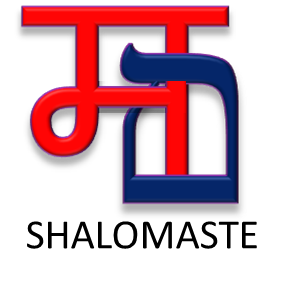1. While Moses is up on Mount Sinai conversing with God,
Aaron (Moses' brother) is told the group on the ground would like to hold a
festival to the "God that brought us out of Egypt." It is important to note
that they are very clear their worship is directed to the same God who is
speaking with Moses.
2. Although some authors compare the Golden Calf to the
Egyptian worship of the bull, this Hebrew statue is clearly a cow. Further,
cows were long considered signs of wealth -- particularly community wealth -- in the
ancient world. The modern words "capital" and "fee," along with the words for
wealth and fortune in Gothic and Old English all have their roots in an ancient
Indian (Sanskrit) word for cow. The reason Moses' brother Aaron quickly agrees
to using this statue as part of their ceremony is because the cow was a common
symbol of community wealth and God's blessing.
3. Although there is no indication the people planned to
worship the cow statue as "a god," the Hebrew people often used a pair of male
and female statues of God in their worship. These were called "Teraphim" and
the Bible considers them sacred. Jacob (later called "Israel") has Teraphim
with him when he rides off to marry Rachael, and later in the Bible the
Israelites bring in a priest and his Teraphim to help them win a battle.
4. Though God is initially angry with this cow statue, Moses
talks God out of any punishment and God never again raises the issue of
punishment -- everything that follows is Moses' idea.
5. When Moses returns from Mount Sinai there is "singing and
dancing" in the camp which Moses' ally, Joshua, describes as a "rebellion."
Once again, this can only be seen as an "ideological" rebellion by those aligned
with the old Hebrew ways of celebrating God as they had in Egypt when they were
wealthy and prosperous. It can almost be seen as a way of invoking the wealthy
days of their past as a way of blessing their future.
6. But Moses will have none of this. After burning the
golden statue and mixing it with water, he forces the people to drink it.
7. Then, he orders the new priest of the Levite clan to
slaughter 3,000 of his own people -- mainly traditional Hebrews - as punishment.
8. Afterwards, God sends a plague down that kills another 3,000
people. There are only two times in the Bible when God sends down a plague
specifically on "His people." In both cases, it follows Moses' slaughter of his
own people for holding to the old ways or challenging his authority.
So, ironically, it might be said that what the people
brought out of Egypt was not the golden calf but the Egyptian priesthood, and with
that came a loss of the religious freedom and covenant they once had in Egypt.
Next Page 1 | 2 | 3 | 4 | 5 | 6 | 7
(Note: You can view every article as one long page if you sign up as an Advocate Member, or higher).





